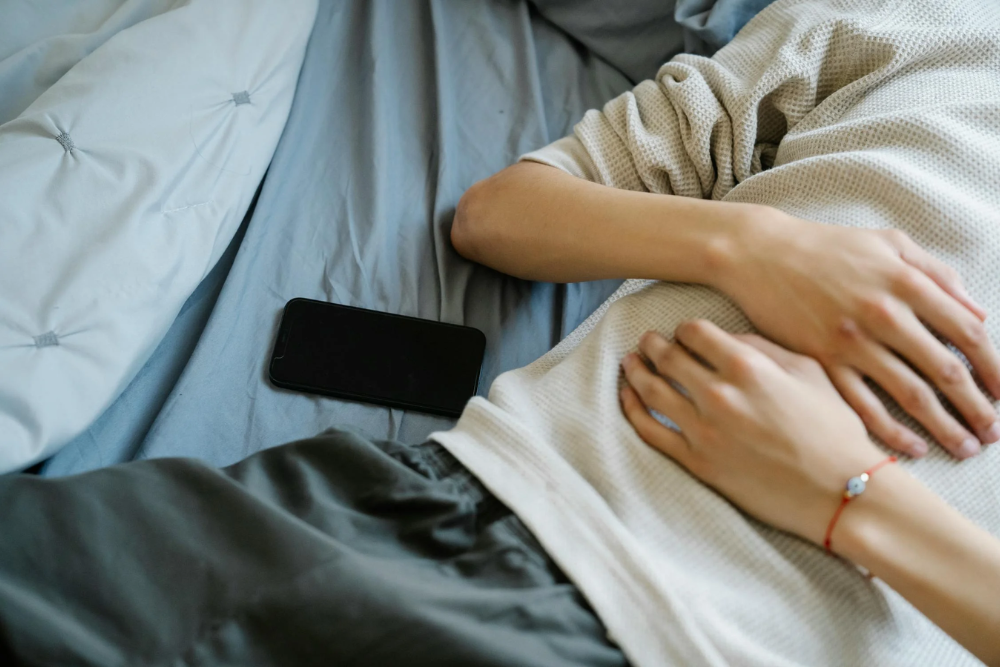Too Much Screen Time? How to Balance Digital Consumption and Creativity
Spending too much time consuming instead of creating? I realized my 22-hour weekly YouTube habit needed a rethink. In this post, I explore balancing content consumption and creativity, why full digital detoxes aren’t realistic, and how to stay mindful while staying informed.

Lately, I’ve noticed just how much time I spend watching YouTube. I often have it running in the background while doing chores, cooking, or commuting. But when my weekly screen time report showed 22 hours on YouTube alone, it caught me off guard. Granted, I wasn’t in front of the screen the whole time, but seeing that time sink still made me rethink my habits.
The Struggle Between Consuming & Creating
I consider myself a creative person—I try to spend my free time making things rather than just consuming content. Whether it’s automations and ads for work, websites for SpaceTime, blog posts, or playing guitar, I’m always creating something. But outside of work and SpaceTime, none of my projects really gain traction. I know it’s a bit silly, but I can’t help wanting my creativity to be seen and appreciated.
It's a bit demoralizing, but I've learned that if you want to enjoy creative work without the weight of your own expectations—or anyone else's—you need to reframe what you expect from your creations. Much like this site, I initially set out to cover all sorts of topics, but I’ve come to understand that I’m not necessarily qualified, cut out for it, or simply don’t have the time to specialize. All I can hope to achieve is to share my perspective and the things I've learned.
Digital Minimalism vs. Digital Reality

Since my recent struggle with digital consumption, I have circled back to r/digitalminimalism. I've found experiences others have shared and perspective they have on the topic profound and helpful. Its core basis is "cut distraction, and live intentionally". I've seen them swap their phones for flip phones, ipads for notebooks, cut out social media entirely, and live almost off the grid. I honestly find this awesome, it sounds like a peaceful and quiet life.
But if you work in business, marketing, content creation, or tech (IT, programming, engineering), disconnecting completely isn’t just unrealistic—it could actually hurt your career.
SpaceTime requires me to stay on top of social media trends, what other brands are doing, new strategies that I can learn and discover to run SpaceTime better. Cutting down on content consumption too much could mean missing out on valuable insights. I’m sure the same goes for those other industries and professions- you just can’t live under a rock in 2025.
Finding balance instead of the extreme
Instead of a full digital purge & detox, I find the key to keep sane is mindfulness. Differentiating useful consumption (industry research, inspiration, cultural and business trends) from mindless consumption (endless YouTube, Tiktok, Instagram, etc). Though this is easier said than done.
One thing I’ve realized is that even useful consumption can turn into a time sink. Researching social media trends for SpaceTime is valuable, but if I’m not careful, I’ll find myself watching unrelated videos or checking other resources for an hour. So, I’ve been experimenting with ways to be more intentional:
- Setting time constraints: Giving myself a set amount of time to research before moving on.
- Consuming with purpose: Asking myself "Why am I watching/reading this?" If I don’t have a clear answer, I stop.
- Use time track apps: I've found this app on the App Store called Jomo (not sponsored) I'm using the free version because it covers what I need. Before opening the apps I set locks to it will ask how much time I plan to use it and for what purpose. This is an extra that I have to take before going on the app, it really helps me be more purposeful with my usage.
I don’t think there’s a perfect system, but just being aware of my habits makes a huge difference.
Accepting and live with the digital world
I’m not going to quit the internet or social media, and that’s okay. Instead of fighting against the digital world, I’ve learned to embrace it—strategically and mindfully. With the amount of information available at our fingertips, we shouldn’t overlook how powerful a tool the internet can be.
At the same time, it’s easy to let content consume us instead of the other way around. The key isn’t quitting cold turkey but making more intentional choices. The internet, like food, isn’t inherently bad—it’s about what we consume and how much of it.
Rather than resisting digital life, we should focus on engaging with it on our own terms—as a tool for learning, connection, and creativity, rather than an endless distraction.
